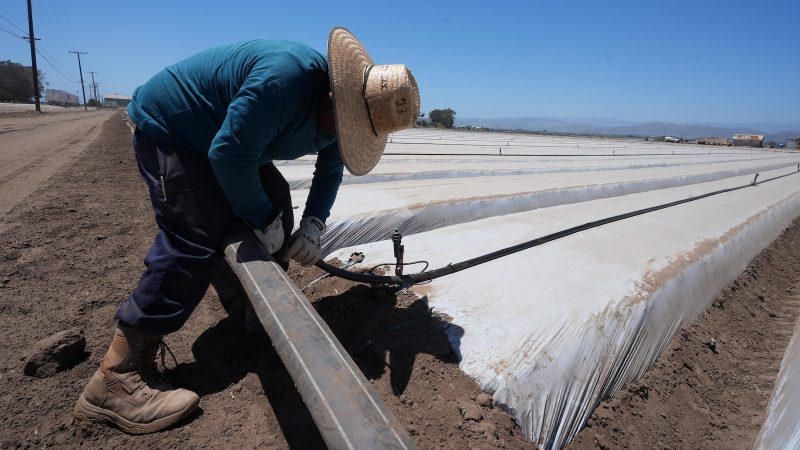
Last week, a temporary reprieve from aggressive ICE raids brought a collective sigh of relief to farmers, ranchers, and hospitality businesses across the nation. President Trump’s order pausing the raids temporarily eased the fear gripping foreign-born workers, many of whom had fled their jobs due to the heightened uncertainty. Rebecca Shi, CEO of the American Business Immigration Coalition, described the initial feeling as one of “calm.” However, this sense of security proved short-lived.
The Assistant Secretary of the Department of Homeland Security, Tricia McLaughlin, swiftly reversed course, declaring that there would be “no safe spaces” for businesses perceived as harboring criminals or undermining immigration enforcement. This abrupt policy shift left businesses reeling, struggling to understand the government’s true intentions and leaving employees once again consumed by fear and anxiety. Shi noted the detrimental impact on business operations, stating that the ongoing stress and trauma experienced by employees are simply unsustainable.
The recent escalation in ICE activity stems from a White House directive increasing daily arrest quotas from 650 to a staggering 3,000. This dramatic increase resulted in widespread raids across various sectors. Shi recounted witnessing ICE agents on farms, even pointing assault rifles at livestock, effectively decimating workforces. One New Mexico dairy, for example, saw its workforce shrink from 55 to just 20 employees – a devastating blow to an industry already struggling with labor shortages. The impact extended beyond direct raids; the mere rumor of impending raids has caused many workers to avoid jobs, even in areas where no ICE activity has occurred.
The consequences are far-reaching. In Washington state’s cherry orchards, the fear of raids has reduced the workforce by a significant margin. Similarly, in Los Angeles’ Little Tokyo, many Hispanic workers, regardless of their immigration status, are skipping shifts out of fear of being targeted. This isn’t just about the raids themselves; it’s about the pervasive climate of fear, with some immigrant parents even questioning whether to go to work for fear of being separated from their children.
President Trump himself acknowledged the economic repercussions of these actions, stating on Truth Social that his aggressive immigration policies were driving away skilled workers, creating nearly impossible-to-fill vacancies. This highlights a glaring conflict: the administration’s political agenda clashes directly with economic realities. With unemployment low, businesses are desperate for workers, and immigrants have long filled crucial roles in agriculture and hospitality, representing a substantial portion of the workforce in these sectors.
Economists have consistently highlighted the importance of immigration to the U.S. economy. While foreign-born workers make up less than 19% of the overall workforce, they represent a significantly higher percentage in key industries like food service (nearly 24%) and agriculture (38%). Undocumented workers alone account for a significant portion of jobs in farming and hospitality. Past immigration influxes have even contributed to mitigating inflation without triggering a recession. This current administration’s immigration policies risk undermining these positive economic impacts and creating further instability.
The uncertainty surrounding ICE enforcement is particularly damaging to businesses. Patrick Murphy, a former congressman and current chief investment officer, described the unpredictable nature of the rules as a major impediment to long-term planning. Similarly, Douglas Holtz-Eakin, former director of the Congressional Budget Office, pointed out that the detention of lawful immigrants due to fears of raids further undermines the administration’s stated economic goals. The current immigration policies are clearly at odds with broader economic objectives.
The situation underscores a critical need for a more coherent and predictable immigration policy. The current approach, characterized by abrupt shifts and widespread fear, is not only inhumane but also economically damaging, jeopardizing the stability of key industries and the overall health of the U.S. economy.










